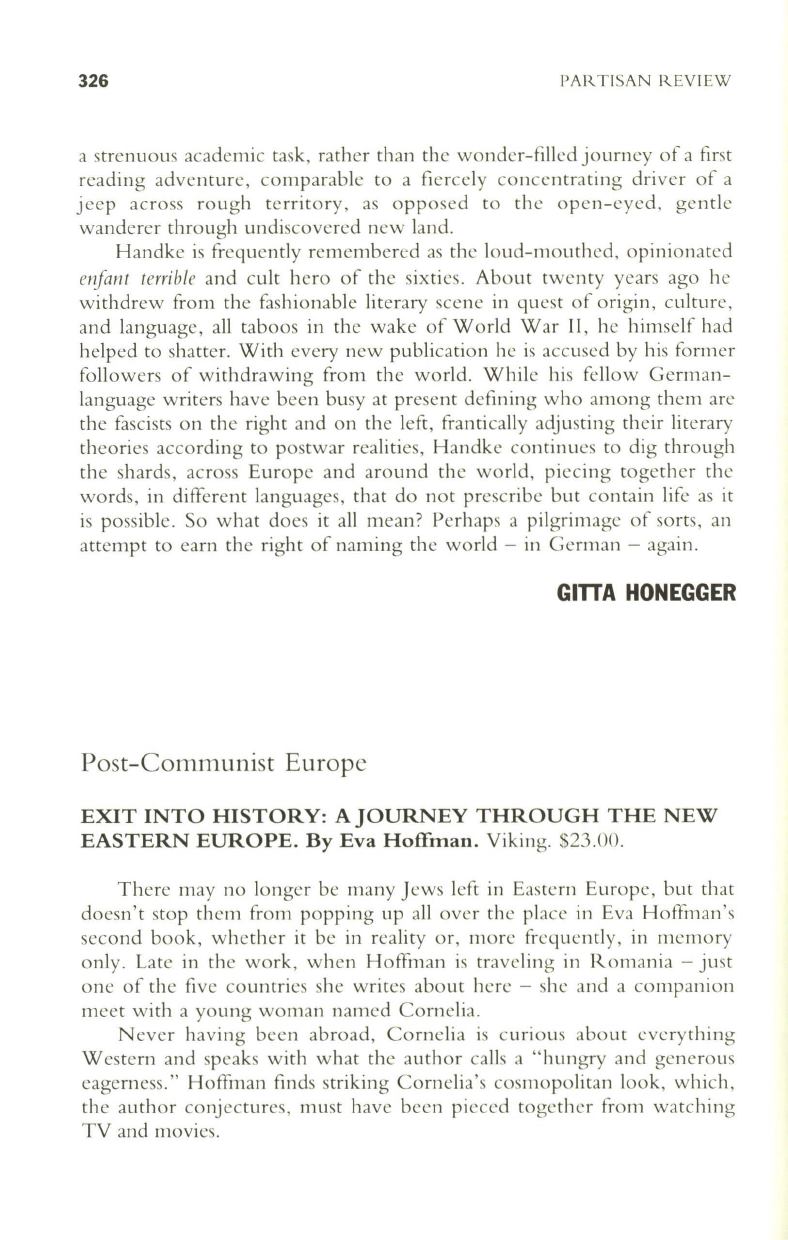
326
PARTISAN REVIEW
a strenuous academic task, rather than the wonder-filled journey of a first
reading adventure, comparable to a fiercely concentrating driver of a
jeep across rough territory , as opposed to the open-eyed , gentle
wanderer through undiscovered new land.
Handke is frequently remembered as the loud-mouthed, opinionated
enfant terrible
and cu lt hero of the sixties. About twenty years ago he
withdrew from the fas hi onable literary scene in quest of origin, culture,
and language, all taboos in the wake of World War
II ,
he himself had
helped to shatter. With every new publication he is accused by his former
followers of withdrawing from the world. While his fellow German–
language writers have been busy at present defining who among them are
the fascists on the right and on the left, frantically adjusting their literary
theories according to postwar realities, Handke continues to dig through
the shards, across Europe and around the world, piecing together the
words, in different languages, that do not prescribe but contain life as it
is possible. So what does it all mean? Perhaps a pilgrimage of sorts , an
attempt to earn the right of naming the world - in Ge rman - again.
GITTA HONEGGER
Post- Communist Europe
EXIT INTO HISTORY: AJOURNEY THROUGH THE NEW
EASTERN EUROPE.
By
Eva Hoffman.
Viking. $23.00.
There may no lo nger be many J ews left in Eastern Europe, but that
doesn't stop them from popping up all ove r the place in Eva Ho ffi" an's
second book, whether it be in reality or, more frequently, in memory
on ly. Late in the work, when Hoffman is traveling in Romania - just
one of the five countri es she writes about here - she and a companion
meet with a young woman named Cornelia.
Never having been abroad, Corneli a is curious abo ut everything
Western and speaks with what the author ca lls a "hungry and generous
eagerness ." Hoffman finds strik ing Corneli a's cosmopolitan look, which ,
the author conjectures, must have been pieced together from watching
TV and movies.


